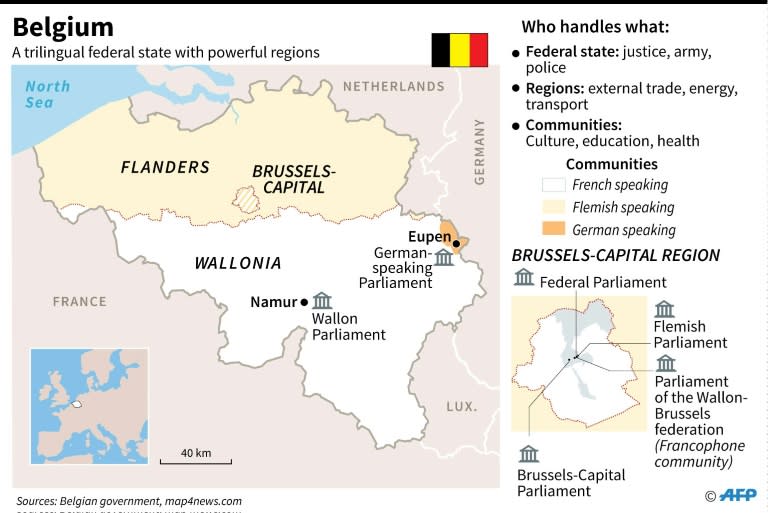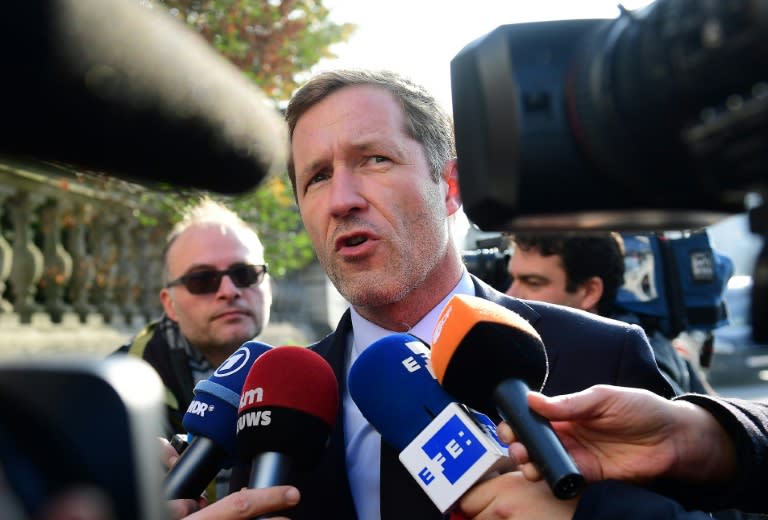Belgian leaders near consensus for EU-Canada trade deal
Belgium's political leaders edged closer to resolving differences that have blocked a landmark EU-Canada free trade deal but time was running short for holding a planned signing summit on Thursday. The stakes are high amid warnings that the EU's international standing, already battered by Britain's shock June Brexit vote, will suffer further if seven years of trade negotiations go to waste because of internal Belgian politics. "We have been able to reach agreement on the documents with all the head ministers" who represent Belgium's linguistic communities, Belgian Foreign Minister Didier Reynders said as the latest of several rounds of talks on Wednesday resumed at 1900 GMT. But further consultations are still needed before the documents are sent for checking to the ambassadors of all 28 EU member states, Reynders said as he arrived at the official residence of Prime Minister Charles Michel. EU leaders have voiced optimism that Belgium's federal government can win over recalcitrant French-speaking communities in eleventh-hour talks, with Canadian Prime Minister Justin Trudeau still due to fly in to sign the deal on Thursday. But Rudy Demotte, president of the southern French-speaking Wallonia's parliament, raised a note of caution by saying "we have technical discussions which are complicated." He also said it would be "difficult" to maintain the plans for a summit in Brussels on Thursday to sign the Comprehensive Economic Trade Agreement (CETA). When and if the documents are sent for review by the EU ambassadors, they will have to be sent back to the Wallon parliament and other Belgian government institutions. In Ottawa, a Trudeau spokesman said "if we are presented with an agreement, we will sign it," but added the Canadian premier will not travel "if there is no agreement." - 'Ready to go' - He added: "We are still ready to go to Brussels tomorrow." In the last few days, a range of intensive talks involving Belgian leaders as well as EU officials have been held in a bid to break the deadlock. "I trust that an agreement will be reached in the course of today with Belgium, Wallonia and other parts of the country," European Commission chief Jean-Claude Juncker earlier told the European Parliament in Strasbourg, France. But he said he did not know if the deal would be reached in time to go ahead with the summit. Donald Tusk, the European Council president who would host the summit, told the European Parliament he hoped the agreement would be finalised soon and that the summit is "still possible." He also warned that the EU's international reputation would suffer if the deal falls through with Canada, "the most European country outside Europe and a close friend and ally." Hinging on its success are other trade negotiations, including even more controversial ones with the United States. The CETA pact would link the EU's single market of 500 million people -- the world's biggest -- with the 10th largest global economy in what would be the most ambitious tie-up of its kind so far. Leaders of Wallonia, a 3.5 million-strong region south of Brussels, want guarantees that CETA will not harm local farming and other interests. Critics especially oppose terms of the deal intended to protect international investors which they say could allow them to force governments to change laws against the wishes of the people.





